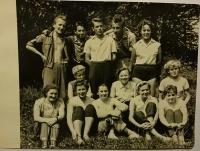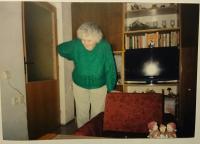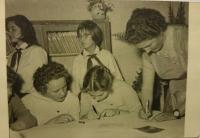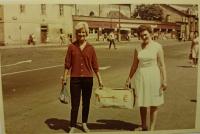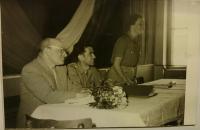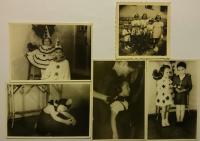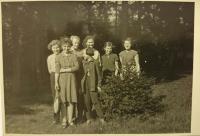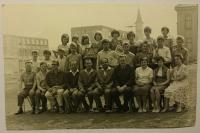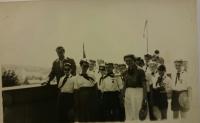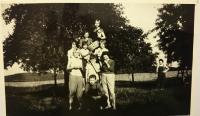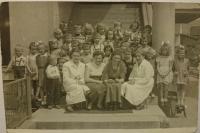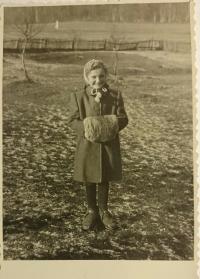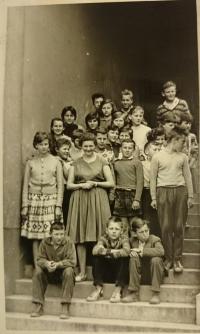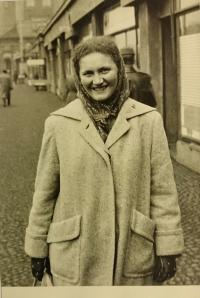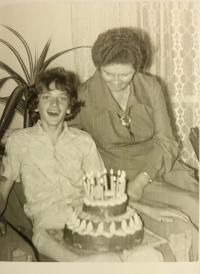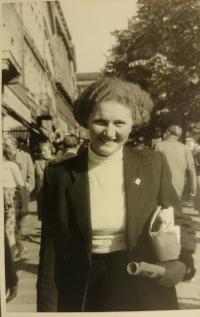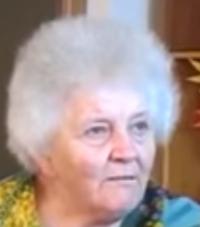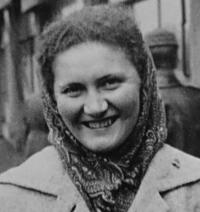Always with a smile

Stáhnout obrázek
Jaroslava Kravčenková, née Pernicová, was born on October 11, 1936 in Zubří near Rožnov pod Radhoštěm. She studied at the Secondary School of Pedagogy in Kroměříž and at the Teaching College in Olomouc. Until the 1970s she worked in schools and in the education field. In 1969 she worked at the Pedagogical Faculty and she helped the students organize a memorial meeting for Jan Palach. After the subsequent political screenings she was expelled from the Communist Party and she was no longer allowed to work in education. Her husband Robert Kravčenko committed suicide in 1976 and she remained alone with three children. She was only allowed to do manual work to earn living for her family. She worked in a bakery and in a hat-making factory. She suffered from a pulmonary disease and after a car crash she ended with a disability allowance. Jaroslava lives in a retirement home in Nový Jičín.
